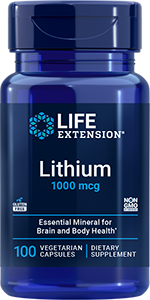
Newsletter
Newsletter
Calorie restriction slows pace of aging in human trial

An ongoing trial that is studying the effects of consuming fewer calories on aging found a two to three percent reduction in the pace of aging among healthy men and women who followed calorie restricted diets.
“In worms, flies, and mice, calorie restriction can slow biological processes of aging and extend healthy lifespan” explained senior author Daniel Belsky, PhD, an associate professor of epidemiology at Columbia Mailman School of Public Health. “Our study aimed to test if calorie restriction also slows biological aging in humans.”
According to the authors of the paper, the two to three percent reduction in the pace of aging among participants following a calorie restricted diet corresponded to 10 to 15 percent reduction in mortality risk similar to that associated with smoking cessation intervention.
In a two-year study, men and women were assigned diets in which the calorie content was lowered by 25 percent based on their energy requirements without restricting essential nutrients. Another group was allowed to eat as much as they wanted.
Blood collected at enrollment and at 12 and 24 months was evaluated for two measurements of biologic age and a measurement of the pace of aging (DunedinPACE computed from the epigenome, which measures the rate of biologic deterioration). “Humans live a long time, so it isn’t practical to follow them until we see differences in aging-related disease or survival,” Dr. Belsky noted. “Instead, we rely on biomarkers developed to measure the pace and progress of biological aging over the duration of the study.”
Dr. Calen Ryan, PhD, a co-lead author of the study explained that “in contrast to the results for DunedinPace, there were no effects of intervention on other epigenetic clocks.” Instead, “the difference in results suggests that dynamic ‘pace of aging’ measures like DunedinPACE may be more sensitive to the effects of intervention than measures of static biological age.”
“Our findings are important because they provide evidence from a randomized trial that slowing human aging may be possible,” he concluded.
The findings were published on February 9, 2023, in Nature Aging.1
Products
Apply What You’ve Learned: Calorie Restriction
- Calorie restriction involves a reduction in usual calorie intake without restricting essential nutrients, and can be practiced for hours or a lifetime, intermittently or continuously. Calorie restriction is linked to weight loss, improved metabolic health and a reduction in disease risk factors.2
- In animals, calorie restriction has resulted in longer life span in all species in which it was evaluated.3,4
- Many individuals find it challenging to consume less food than usual for an extended period. Intermittent fasting, where you don’t eat for a given amount of time (for example, 16 hours) during a 24-hour period, may provide many of the same benefits as continuous calorie restriction.5
- Some nutrients and ingredients have been shown to provide similar effects of calorie restriction; these are called “mimetics.” Resveratrol, nicotinamide riboside (NR), EGCG from green tea, quercetin, curcumin, metformin and more may act as calorie restriction mimetics.6,7
References
- Waziry R et al. Nature Aging. 2023 Feb 9.
- Walford RL et al. J Gerontol A Biol Sci Med Sci. 2002 Jun;57(6):B211-24.
- Estey C et al. Exp Gerontol. 2012. 47(5): p. 361-71.
- Heilbronn LK et al. JAMA. 2006 Apr 5;295(13):1539-48.
- de Cabo R et al. N Engl J Med. 2019 Dec 26;381(26):2541-2551.
- Ingram DK et al. Aging Cell. 2006 Apr;5(2):97-108.
- Madeo F et al. Cell Metab. 2019 Mar 5;29(3):592-610.
Featured Life Extension Magazine® Article
William Shatner: Stem Cells and Other Methods to Fight Aging
By Laurie Mathena
Famed Star Trek actor William Shatner, at 91 years old, has exemplified the admonition to “live long and prosper.” His lifestyle includes many of the practices of long-lived Blue Zone communities, including consuming a plant-based diet, staying active and living with purpose.
At the age of 90, Shatner became the oldest individual to fly into space when he was a passenger on the spaceship Blue Origin. More recently, he received an infusion of stem cells intended to supply the body with restorative factors. "If you allow yourself to be awed by life, to keep drinking in its limitless knowledge, to keep striving for answers, to enjoy the beauty around us at every moment, to never stagnate...well, then you might find yourself living for a very long time, and, ideally, prospering," he advised.
Read Full Article
What's Hot
Health Concern
How does calorie restriction affect immune health?
The February 11, 2002, issue of Science explored the relationship of consuming fewer calories to human immune response and inflammation.

Caloric Restriction
There is no exact composition of the caloric restriction diet, but you need to consume a caloric deficit while getting nutrient-dense foods and avoiding empty calories. Learn more about its benefits.
Related Life Extension Magazine® Articles

Nutrients that Provide Benefits of Caloric Restriction
Caloric restriction extends healthy lifespans. Researchers have identified plant-derived compounds that activate similar cellular responses.

Calorie Restriction Update
Blood sugar levels in the high-normal range can result in significant brain shrinkage in areas involved with memory. Learn to control glucose naturally, without medication, and protect your brain function through the online course, The CR Way® to Great Glucose Control.
Health Topics: Wellness Starts Here
Living your longest, healthiest life starts with making the right choices every day—from what you eat to how much you move to how well you sleep and how you manage stress. Life Extension is proud to be your partner as you navigate this journey.
Learn MoreLife Extension Magazine® Issue Now Online
A remarkable number of healthy-longevity findings have been published over the past 18 months.




